Everybody on Twitter wants to offer their hot takes on the atomic bombing of Hiroshima and Nagasaki?
Fine, here's the correct one. Mine.
Short version? Terrible actions that spared us far worse ones. Such is war.
Long version? Lets start with two words.
Downfall
Ketsugō
Fine, here's the correct one. Mine.
Short version? Terrible actions that spared us far worse ones. Such is war.
Long version? Lets start with two words.
Downfall
Ketsugō
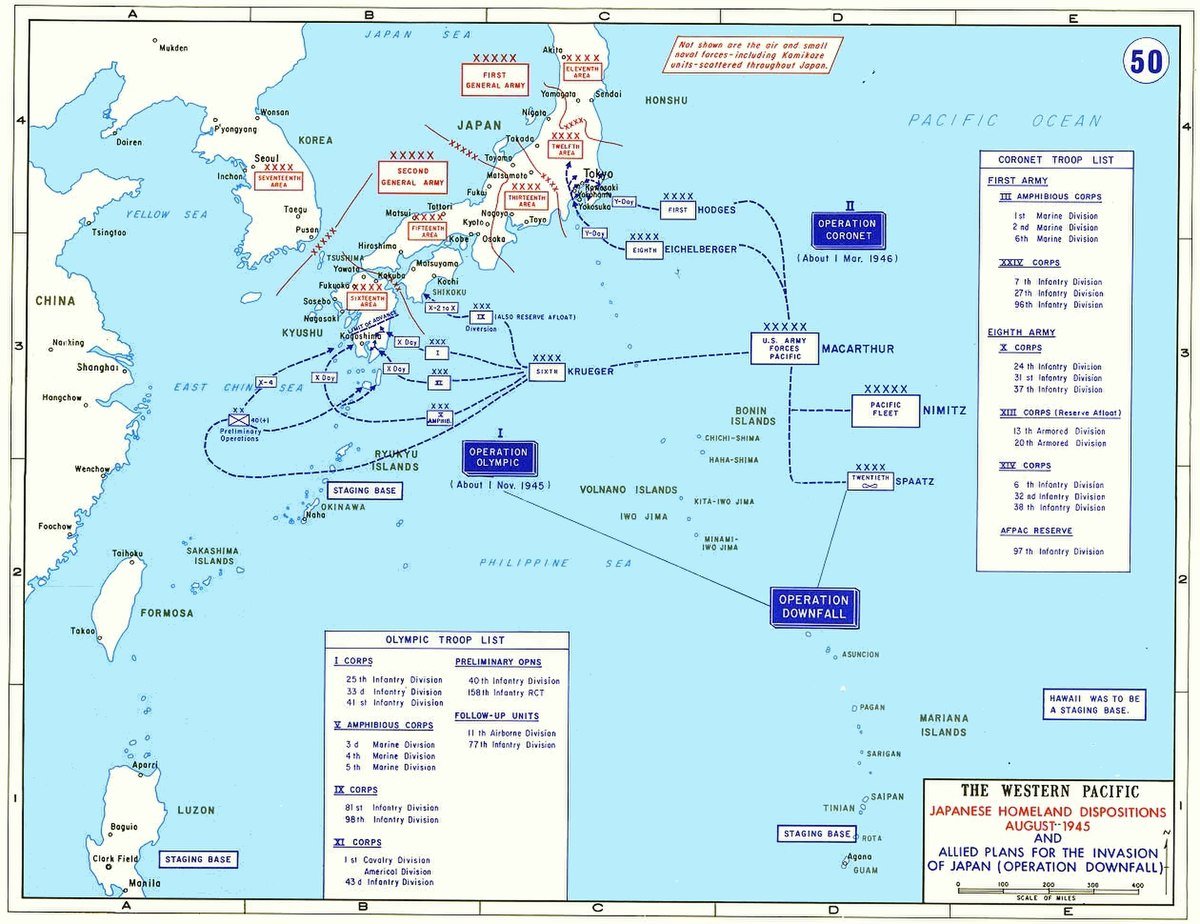
It's become popular these days to decry the bombings, understandable given we know much more about the consequences of nuclear warfare today than we did in 1945.
By saying it was justified, I don't mean to say that what happened to Hiroshima and Nagasaki wasn't horrible.
By saying it was justified, I don't mean to say that what happened to Hiroshima and Nagasaki wasn't horrible.

This is one of the rare occasions that we can say with certainty that the alternative was worse: Operation Downfall and Operation Ketsugō.
Among the upsides to the bombs ending the war is we have access to the abandoned war plans from both sides.
It would have been a bloodbath.
Among the upsides to the bombs ending the war is we have access to the abandoned war plans from both sides.
It would have been a bloodbath.
For the uninitiated, Operation Downfall was the two pronged Allied war plan to invade the Japanese Home Islands, with Operation Olympic set to capture Kyushu, and Operation Coronet set to land troops to invade the Kanto plain on Honshu.


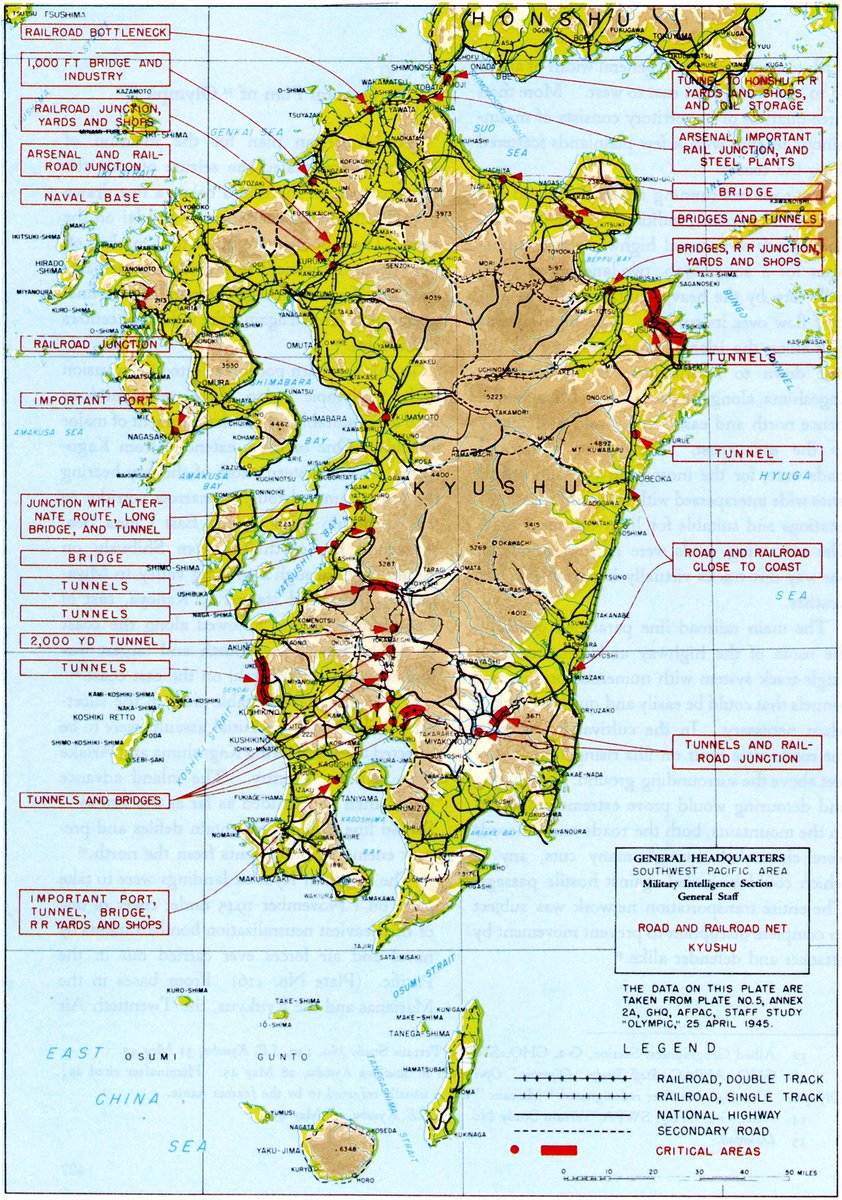
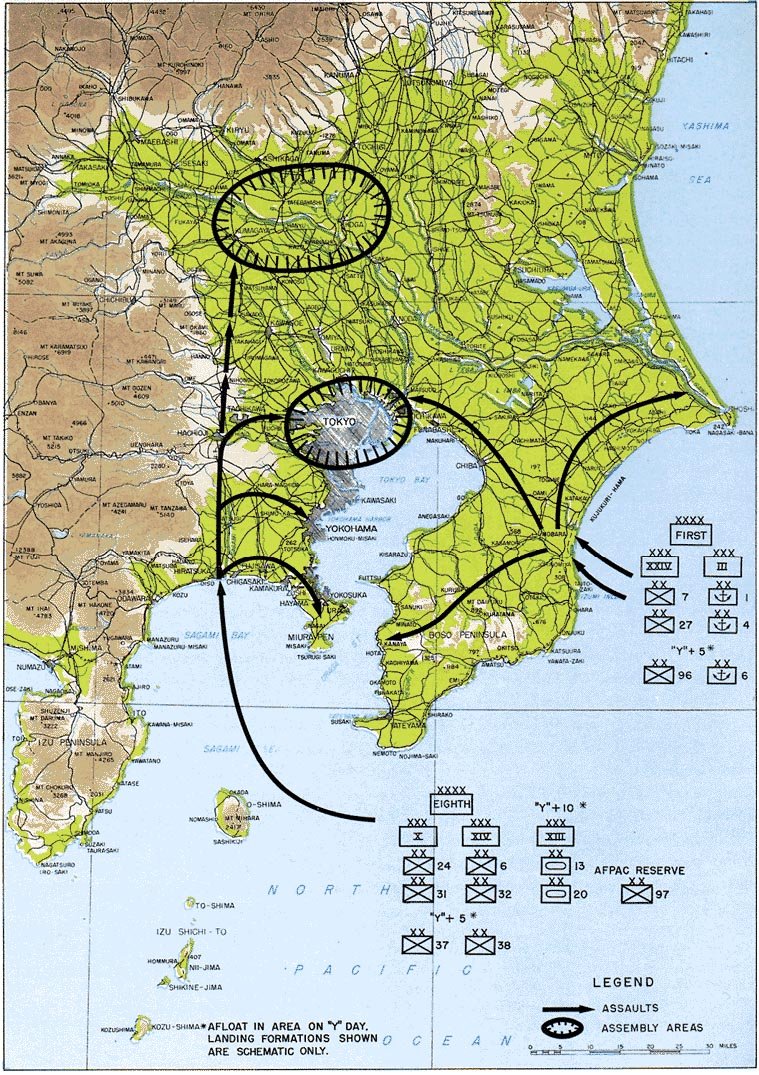
The scale of the operation was daunting. Both would have dwarfed the Normandy landings in terms of both manpower and operational complexity. More than a million men would have been involved in both, and over 500 ships, including 42 aircraft carriers, from every Allied nation. 
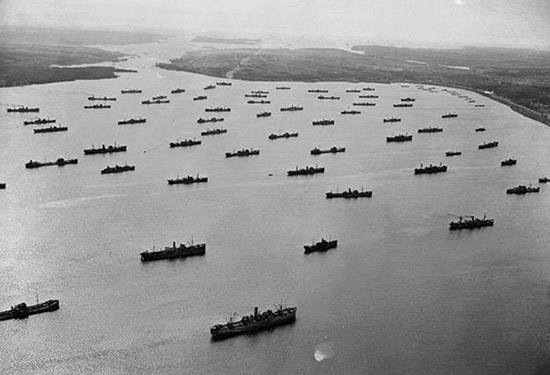
Meanwhile, the Allied bombing campaigns were to continue, and be increased - to those who opposed the nukes, these conventional bombings killed far more people than either nuclear bomb.
The Firebombing of Tokyo alone killed more people than Hiroshima and Nagasaki combined.
The Firebombing of Tokyo alone killed more people than Hiroshima and Nagasaki combined.
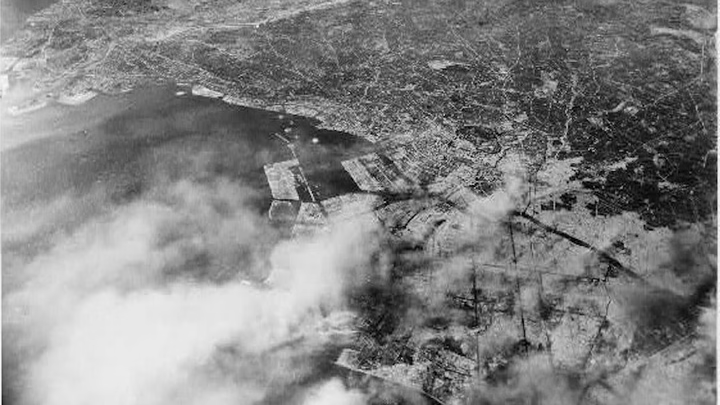
The amount of detail into the war plans for Downfall is impressive... yet the most appalling thing about it are the projected casualties.
500,000-1 million Allied KIA/wounded
10 million Japanese combat deaths, military and civilian
10 million Japanese dead from famine.
500,000-1 million Allied KIA/wounded
10 million Japanese combat deaths, military and civilian
10 million Japanese dead from famine.
In a year or two, America would have seen more combat dead and wounded than the entire European theater.
Meanwhile, Japan would have lost between a fourth or a third of it's pre-war population.
And note that those are the OPTIMISTIC numbers. They'd all be much higher.
Meanwhile, Japan would have lost between a fourth or a third of it's pre-war population.
And note that those are the OPTIMISTIC numbers. They'd all be much higher.
This is before we factor in WMDs and their aftermath... because Japan still gets nuked in this scenario.
Now we're sending American GIs through within hours of bombing the beaches, without no radiation protection.
We had no clue what we were dealing with nuclear weapons.
Now we're sending American GIs through within hours of bombing the beaches, without no radiation protection.
We had no clue what we were dealing with nuclear weapons.
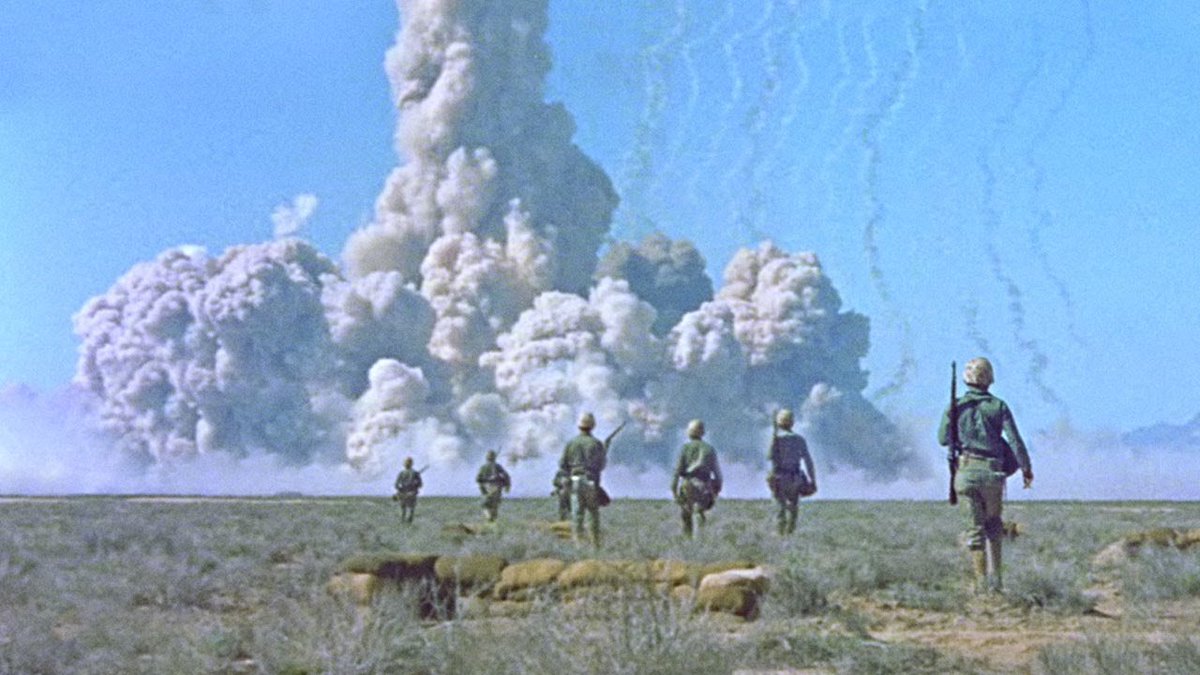
Even the Pentagon was coming to grips with how much bloodier the invasions would be than the planners said... the numbers coming in from Okinawa, Saipan and Iwo Jima were sobering realities on that. 
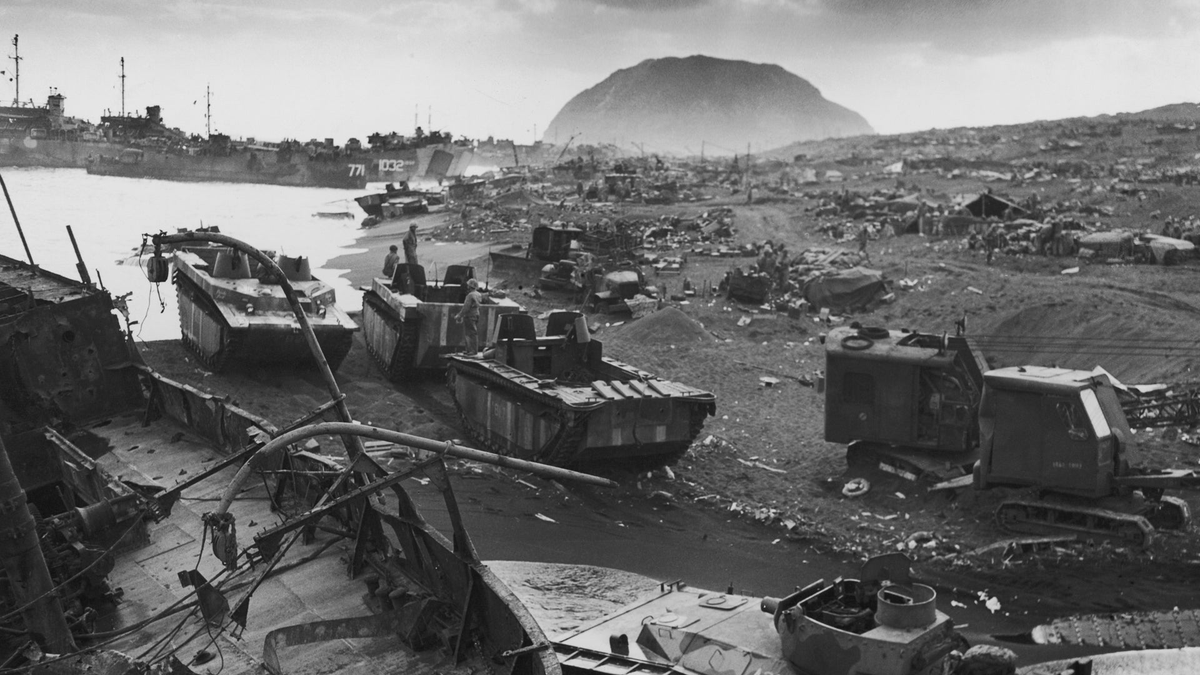
It's well known 1 million Purple Heart medals were made to be awarded to wounded soldiers participating in the first wave of Downfall, one the Pentagon expected to be butchered on the beaches of Kyushu. 
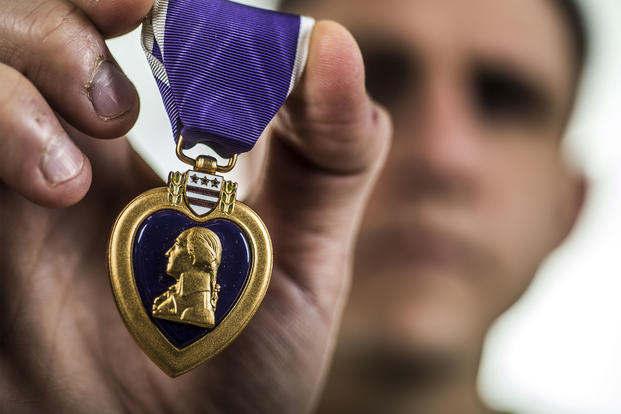
Today, 79 years and multiple wars later, we still have more than 100,000 Purple Heart medals from that stock remaining.
Every single Purple Heart recipient since WWII received a medal that was originally planned to be awarded for Operation Downfall.
Every single Purple Heart recipient since WWII received a medal that was originally planned to be awarded for Operation Downfall.
The scary thing is that Japanese war plans, Operation Ketsugō, were a near perfect counter to Downfall.
Unfortunately, one of the nasty things about invading the Japanese Home Islands is that there are only two possible directions of attack - Kyushu and the Kanto plains.
Unfortunately, one of the nasty things about invading the Japanese Home Islands is that there are only two possible directions of attack - Kyushu and the Kanto plains.
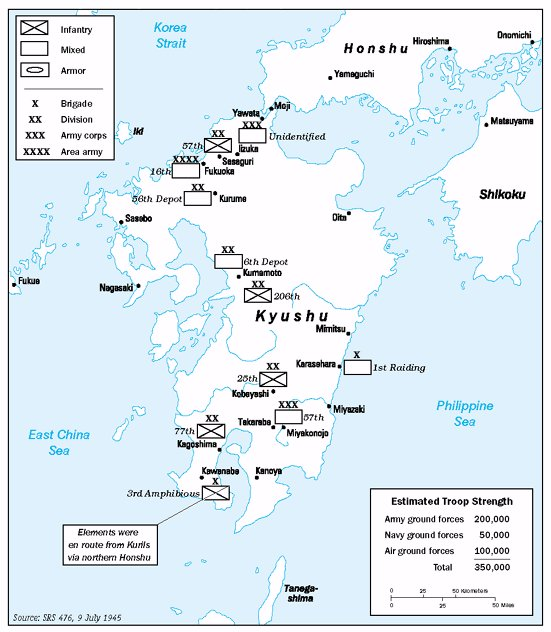
Today, we have access to war plans from both sides, and the Japanese defense plans, while not perfect, for the initial phases of any invasion of the Home Islands, are a nearly ideal counter to Allied invasion plans. The only thing they didn't account for was nuclear weapons. 
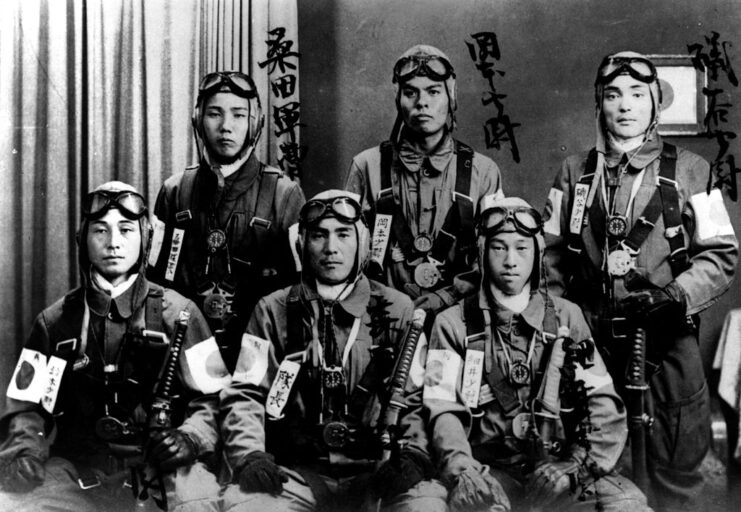
The Japanese forces in Kyushu were armed to the teeth, heavily entrenched, and armed with everything from what was left of the Japanese air force to chemical weapons.
Southern Kyushu - the crux of Operation Olympic - was one of the most fortified places on Earth in late 1945.
Southern Kyushu - the crux of Operation Olympic - was one of the most fortified places on Earth in late 1945.
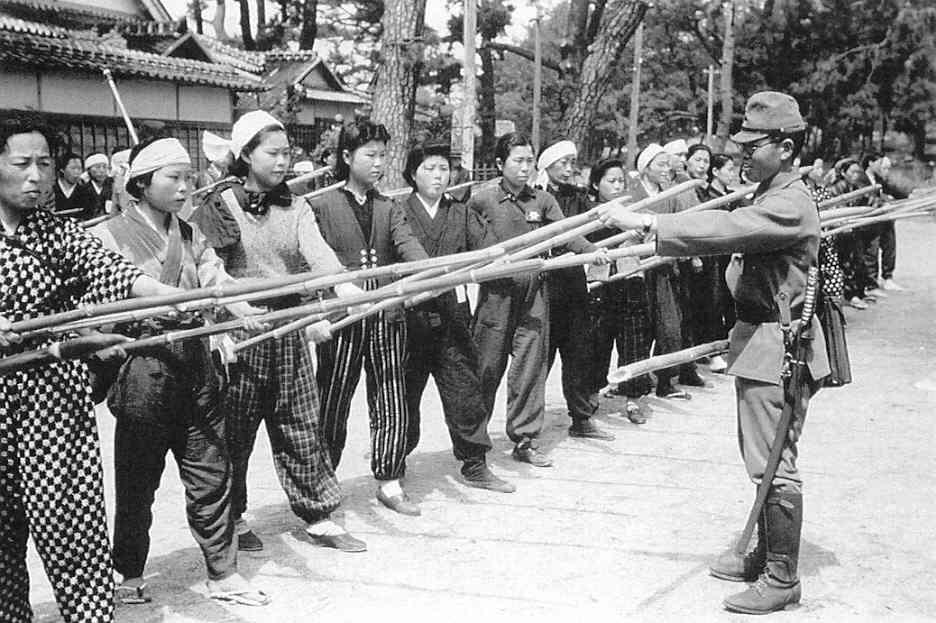
Across the home lands, civilians were being whipped into a frenzy, armed with everything from hunting rifles to fishing spears, young children, women and old men being ordered to die for the Empire. 
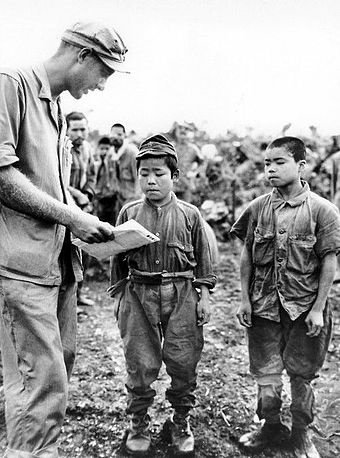
The Japanese had a name for this: the Glorious Death of One Hundred Million. They were prepared to fight to the last man, in hopes they took a few million GIs with them. If Japan would not win the war, they were religiously dedicated to making sure the Allies choked on victory. 
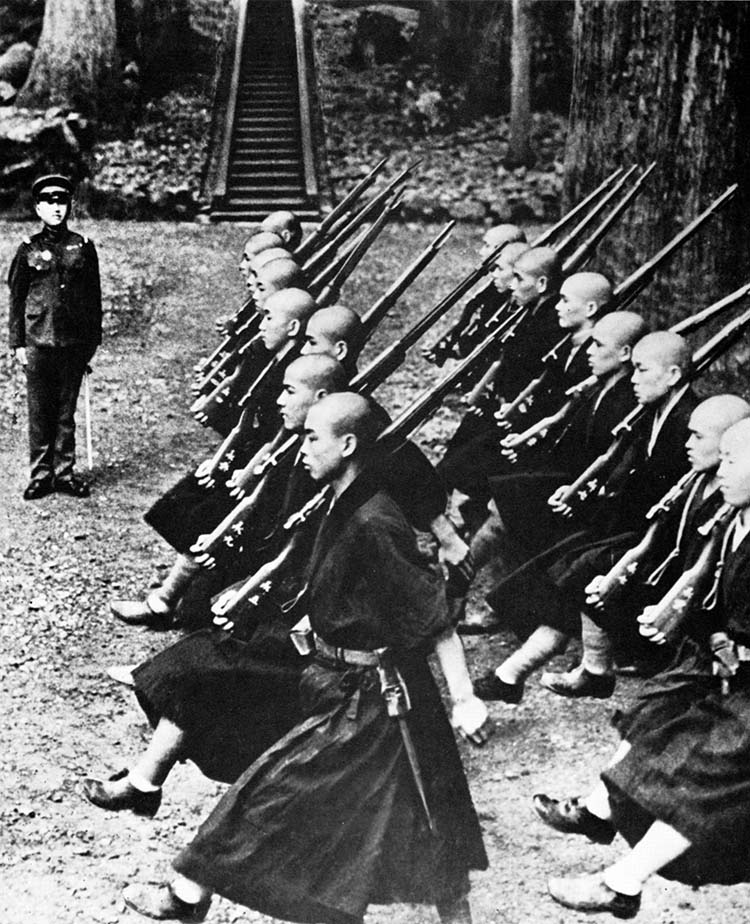
Look at the casualty rates among the Japanese at Okinawa, Saipan, Iwo Jima. Surrender almost never happened, and survivors numbered in the hundreds - the rest either killed in combat or committed suicide. You had casualty rates approaching 98% in some cases, including civilians. 
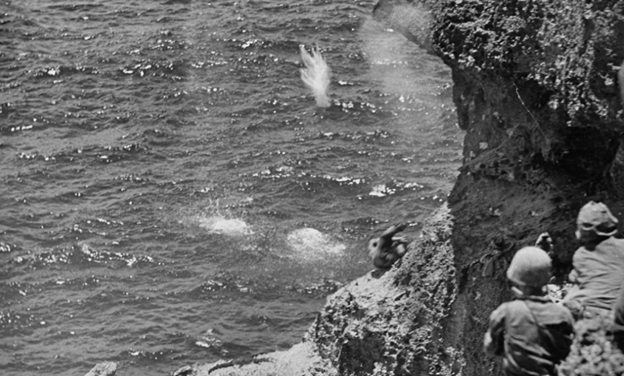
From a military planning POV, that kind of "fight to the death" mentality DOES NOT HAPPEN.
Stalingrad, as bitter and bloody as fighting was, still had surrender and survival rates closer to 40 or 50 percent, and its one of the deadliest, most brutal battles in modern history.
Stalingrad, as bitter and bloody as fighting was, still had surrender and survival rates closer to 40 or 50 percent, and its one of the deadliest, most brutal battles in modern history.
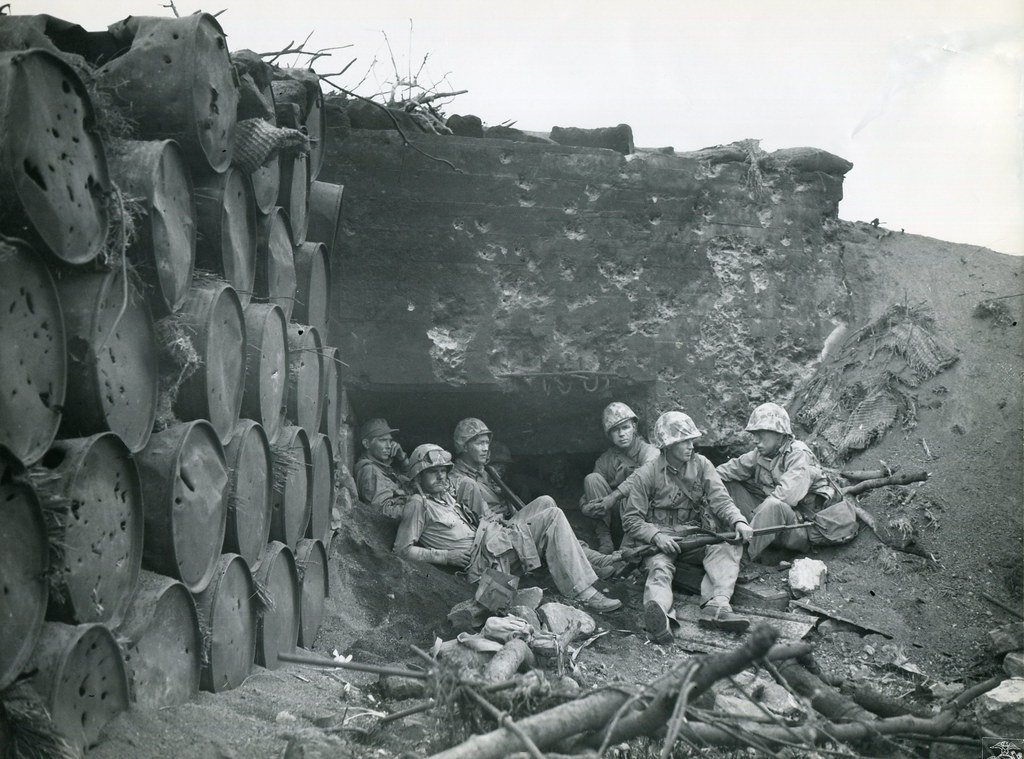
There were pockets of Japanese soldiers who kept fighting for decades after the war, some as late as the 1970s.
Notice how we never had stories of Americans still fighting in Vietnam in the 90s, or Germans taking potshots at Polish police and raiding farms in Ukraine in the 70s?
Notice how we never had stories of Americans still fighting in Vietnam in the 90s, or Germans taking potshots at Polish police and raiding farms in Ukraine in the 70s?
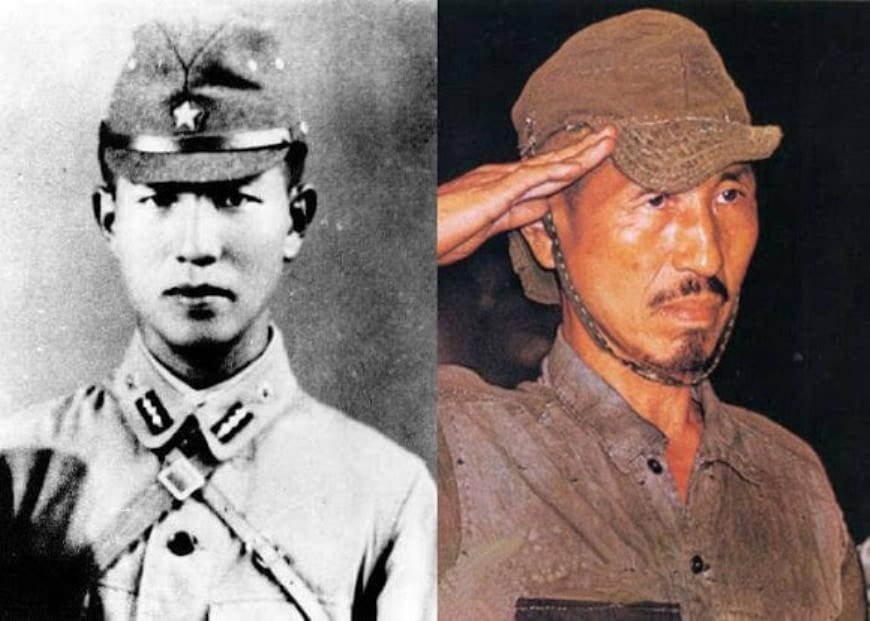
Apply all this to an island chain the size of California, with 70 million people mobilized and whipped into a frenzy to die gloriously for the Emperor.
An Island full of Stalingrads... Iwo Jima and Saipan times a hundred.
If your blood ran cold, that just means you have a pulse.
An Island full of Stalingrads... Iwo Jima and Saipan times a hundred.
If your blood ran cold, that just means you have a pulse.
All of this doesn't even touch on the ongoing war outside of the Japanese Home Islands, with fighting continuing everywhere from Manchuria to Indonesia. Fighting which would have continued without the atom bombs, at the price of hundreds of thousands of lives. 
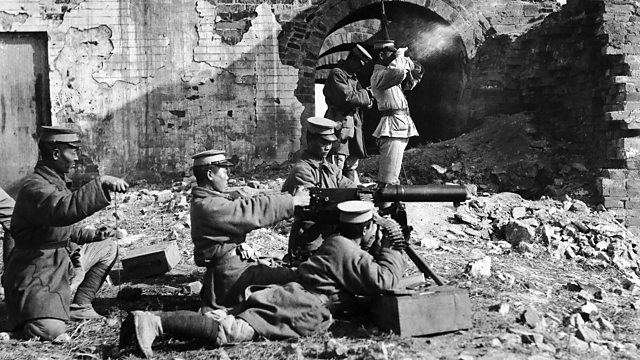
To name but one example, the planned Soviet invasion of Manchuria was expected to take between 500,000 and 1 million casualties to pacify the region... two to four times what they had lost taking Berlin.
For all the tankies saying Soviet entry forced out Japan?
Not even close.
For all the tankies saying Soviet entry forced out Japan?
Not even close.
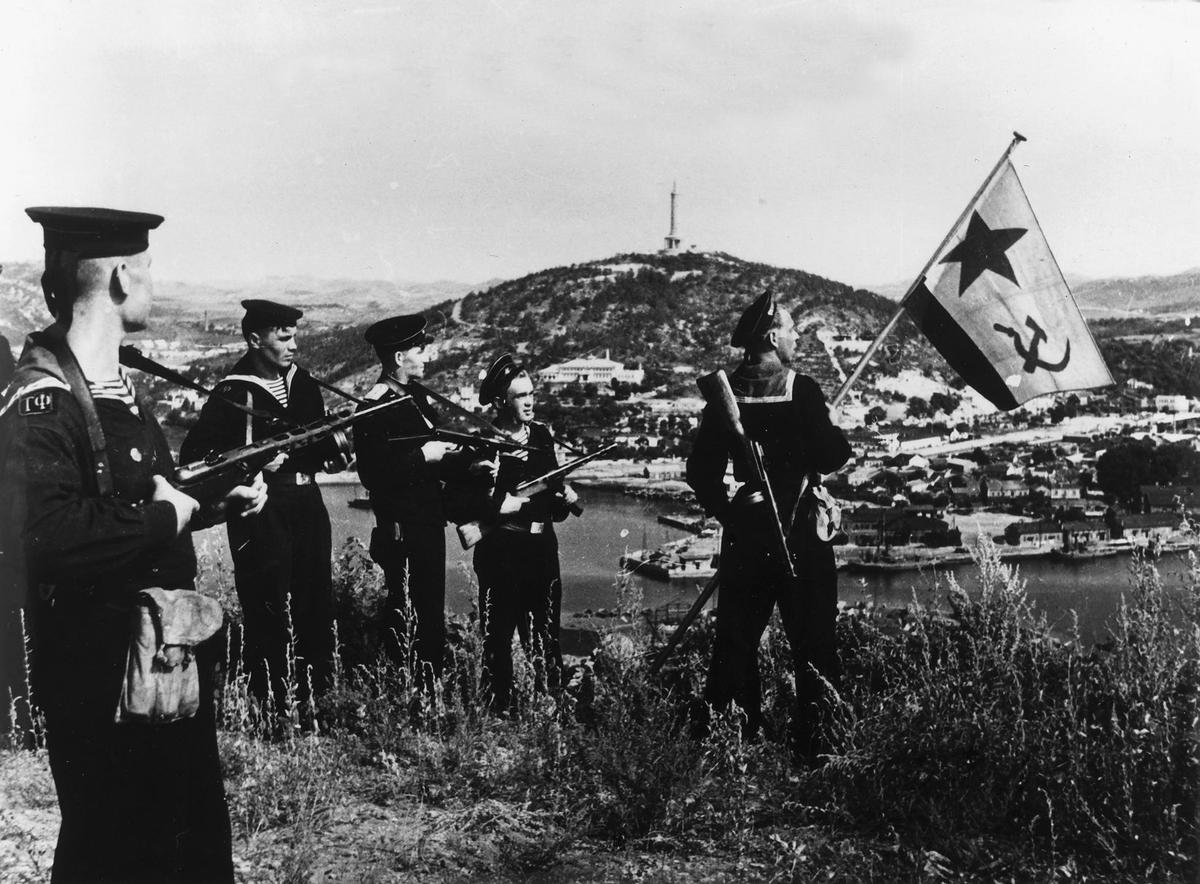
This is where the choice to drop the atom bomb came in... looking over the possibility of millions of further Allied and Japanese dead, President Truman decided to try a Hail Mary pass, to try these so-called superweapons, and see if they could bring Japan to the table. 
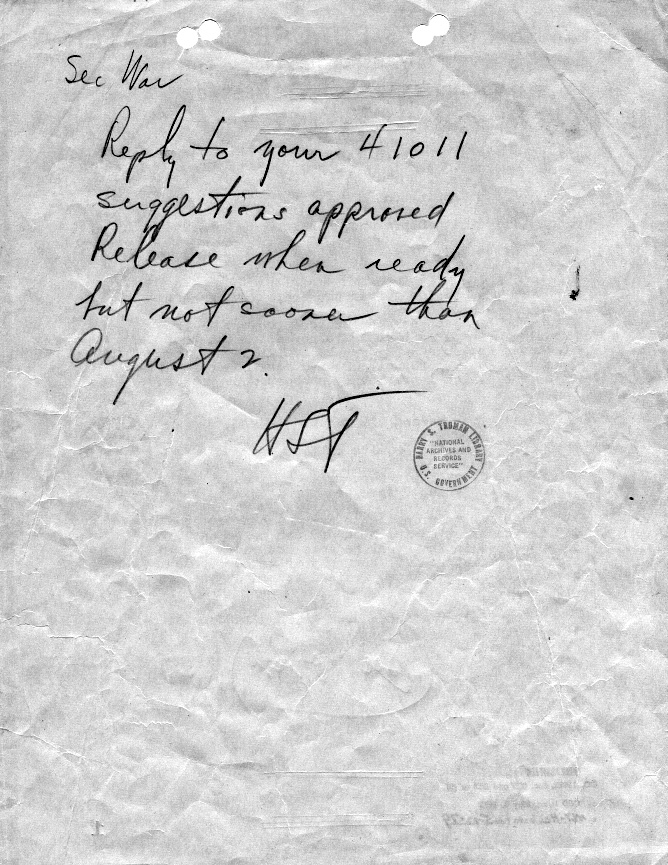
Two planes took off, two bombs fell, two cities went up in thermonuclear flame, and the world entered the Atomic Age.
The impact the bombings on the Japanese government was immediate.
The impact the bombings on the Japanese government was immediate.
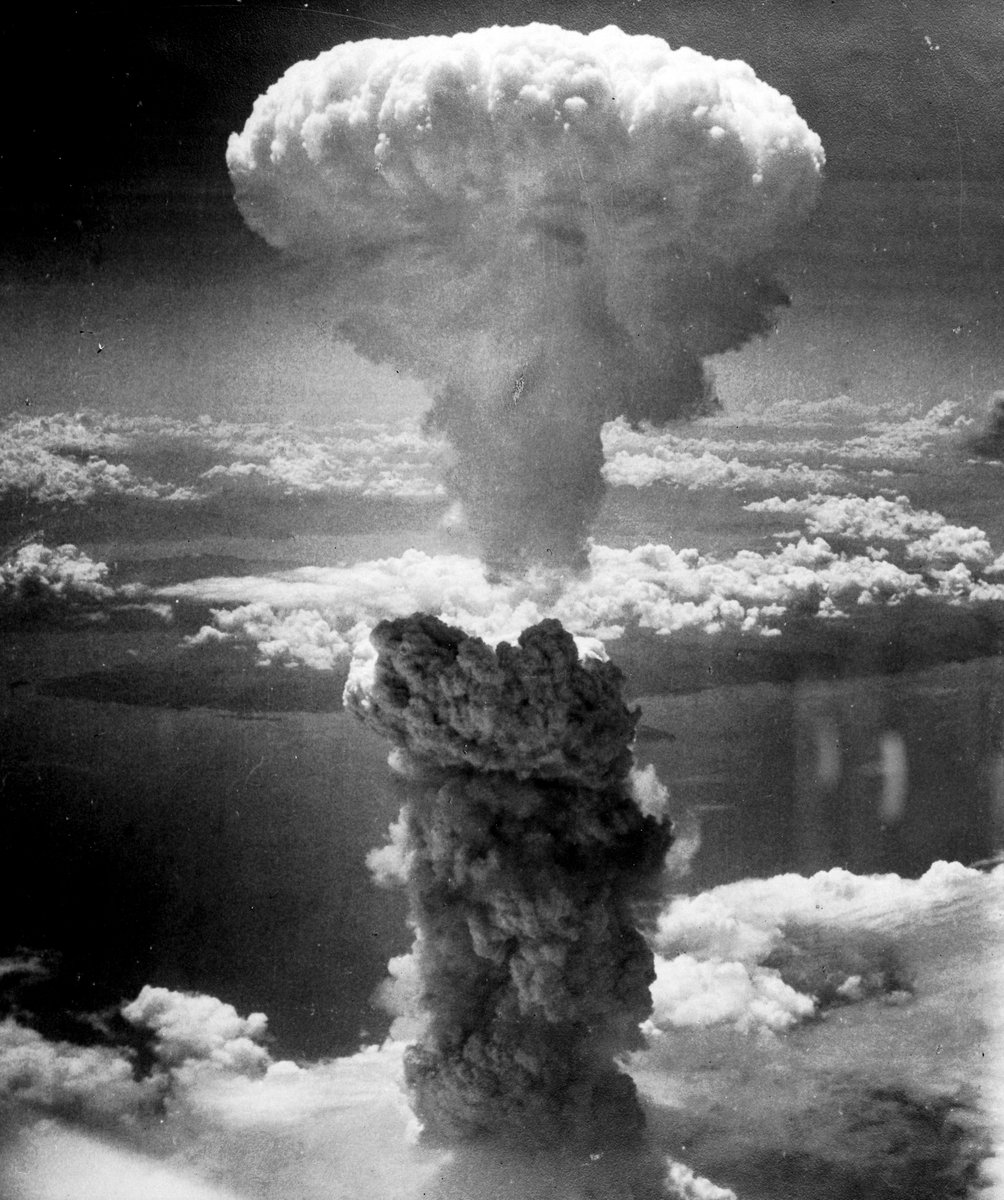
In all but the most devoted of hardliners, the will to fight to the death died with Hiroshima and Nagasaki.
They were the first to realize the reality of how atomic weapons had changed warfare, even before we did:
They were the first to realize the reality of how atomic weapons had changed warfare, even before we did:
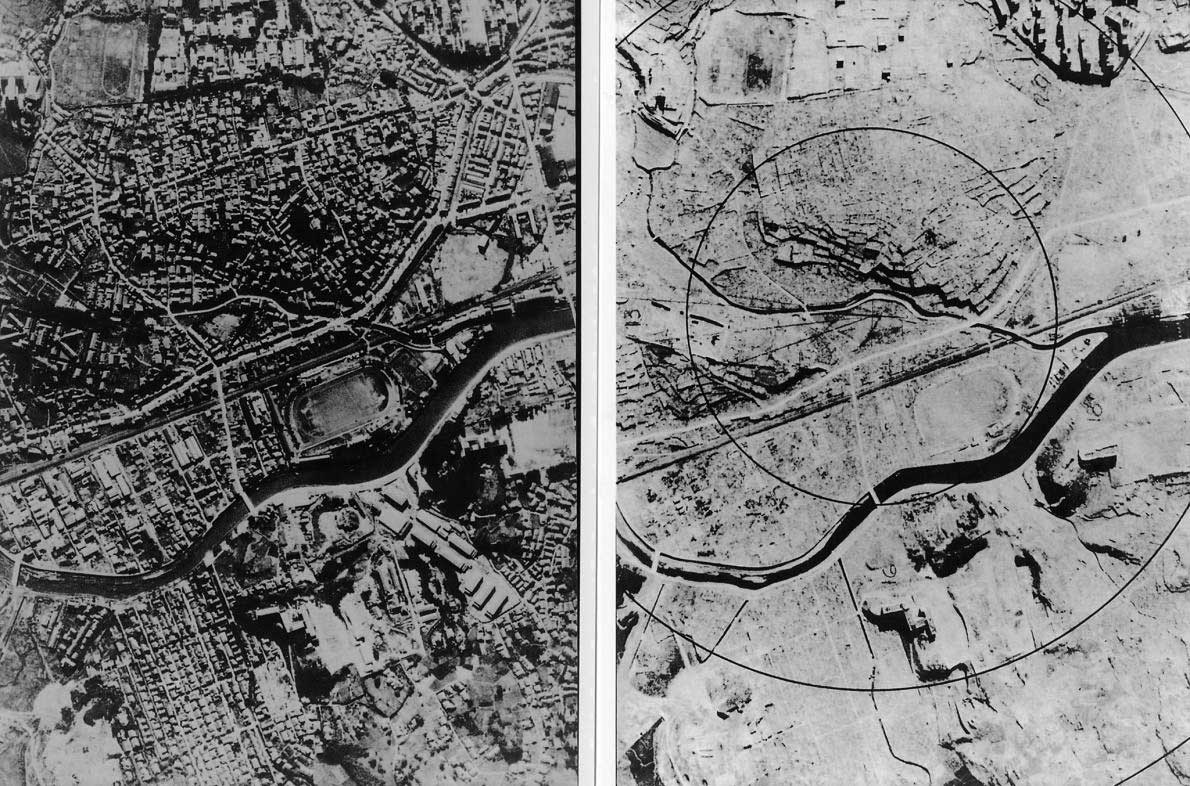
There would be no glorious final battle, no bold last stand, no "Glorious Death of One Hundred Million".
We possessed the means to exterminate Japan, and they had no means to counter.
Surrender or Extermination. THAT was the choice, burned in atomic flame.
We possessed the means to exterminate Japan, and they had no means to counter.
Surrender or Extermination. THAT was the choice, burned in atomic flame.
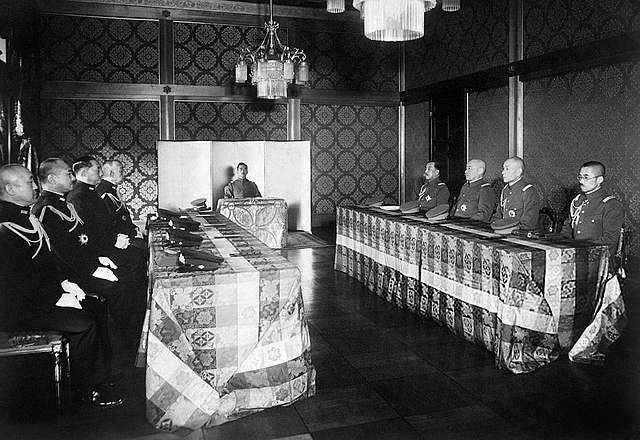
After days of debate, Emperor Hirohito would force the hands of the Japanese military, issuing a surrender over the airwaves... begging the Japanese people "to bear the unbearable". The man who Japan considered a god, whose voice many had never heard, asked them to surrender. 
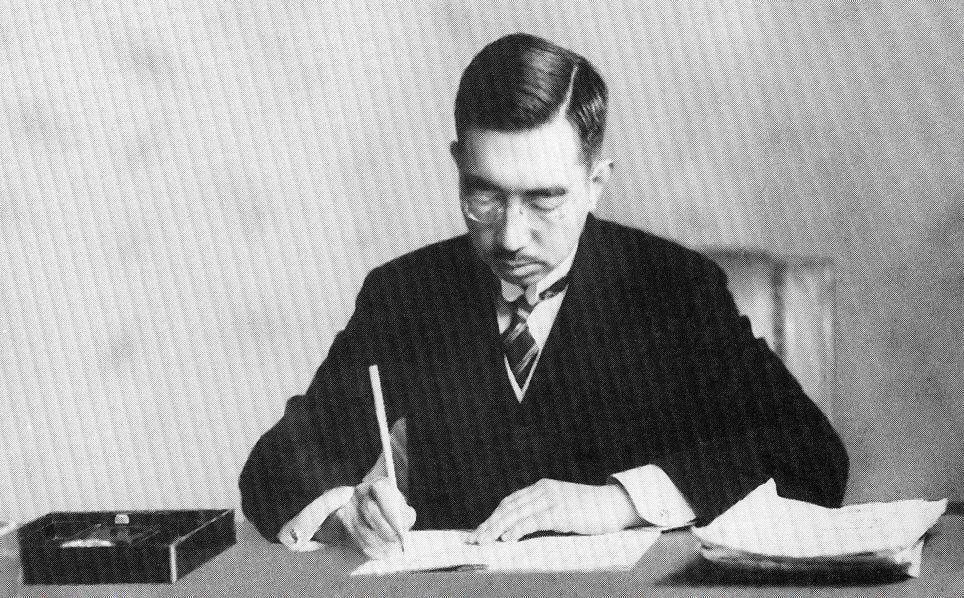
Even this very nearly wasn't enough. Even while Hirohito took to the airwaves to surrender, there was an attempted coup by military hardliners determined to continue the war. This, what would become known as the Kyūjō incident, is technically the last battle of WWII. 
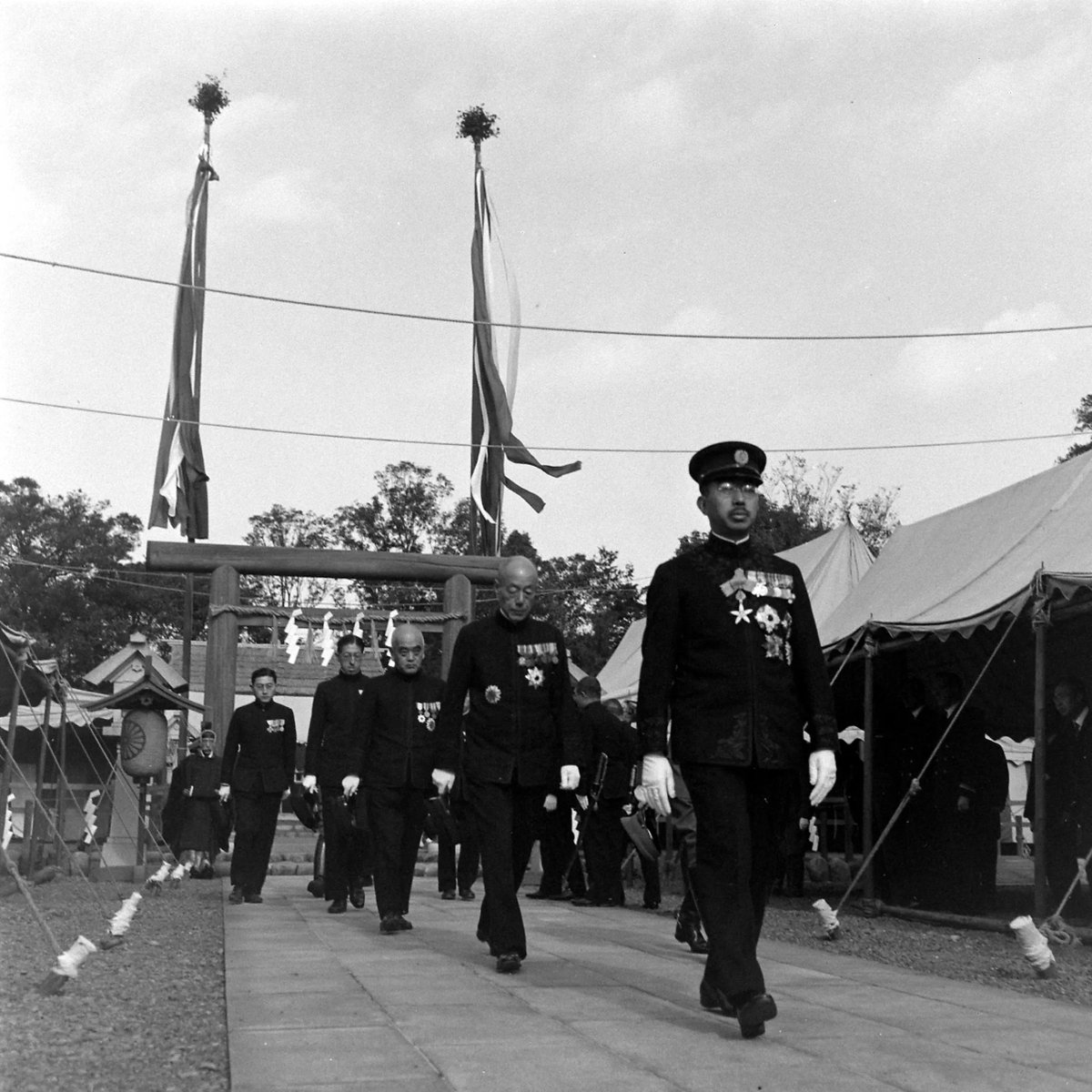
Instead, Japan did surrender.
The war ended.
Downfall and Ketsugō would remain only on the drawing board.
200,000 people in Hiroshima and Nagasaki died.
Tens of millions of people across both sides of the Pacific lived.
The war ended.
Downfall and Ketsugō would remain only on the drawing board.
200,000 people in Hiroshima and Nagasaki died.
Tens of millions of people across both sides of the Pacific lived.
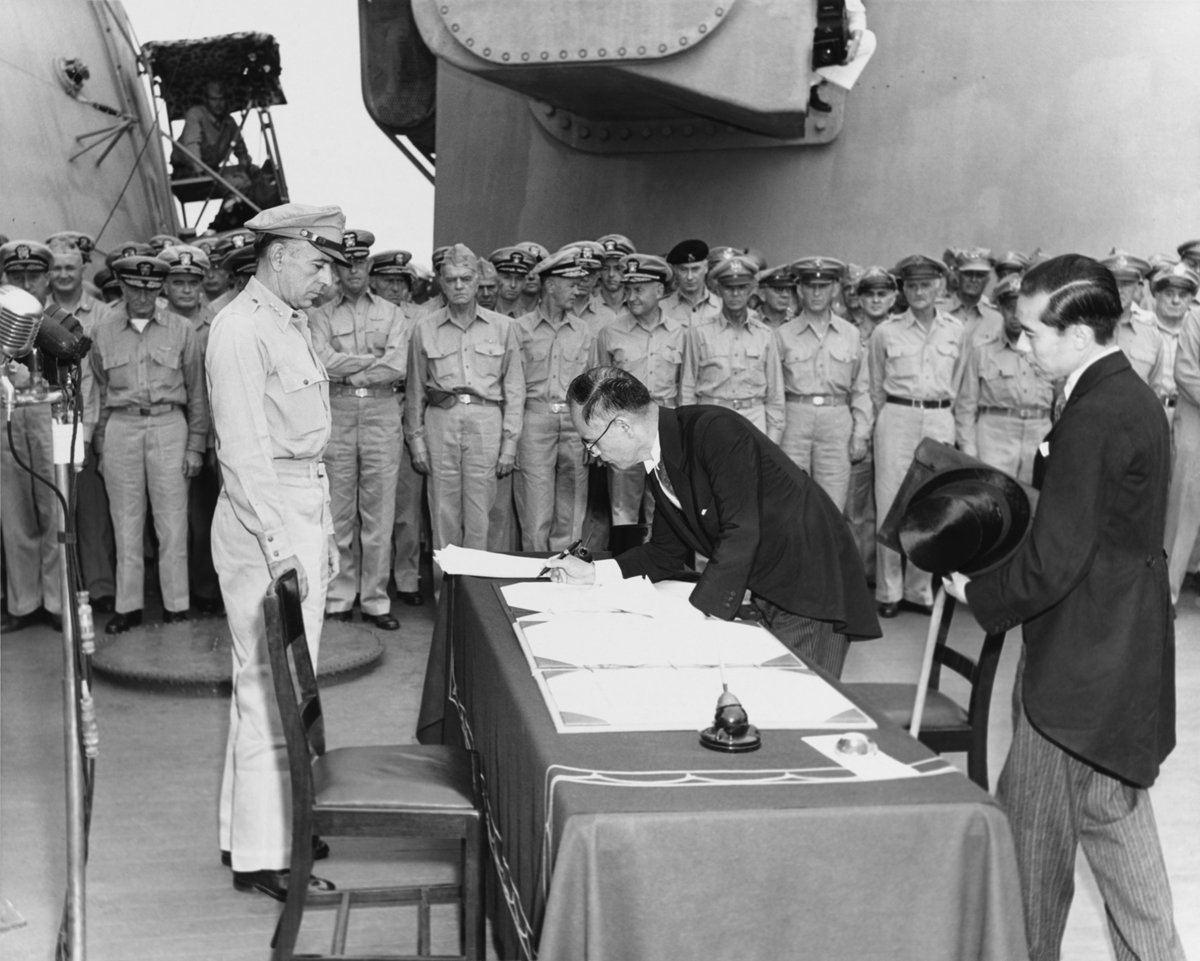
War is a terrible thing, the bombings of Hiroshima and Nagasaki worse than most.
But it's also once of the few times in history we can say with near absolute certainty that events could have been much, much worse.
But it's also once of the few times in history we can say with near absolute certainty that events could have been much, much worse.
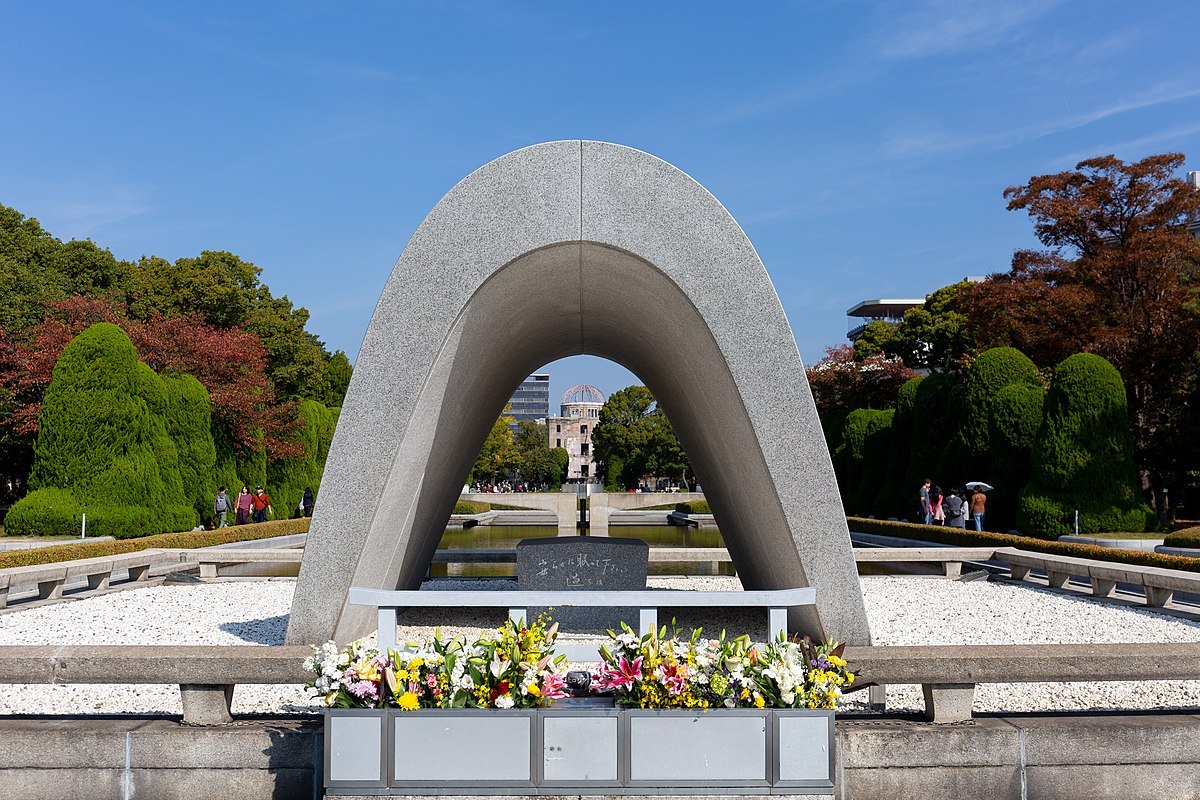
• • •
Missing some Tweet in this thread? You can try to
force a refresh











